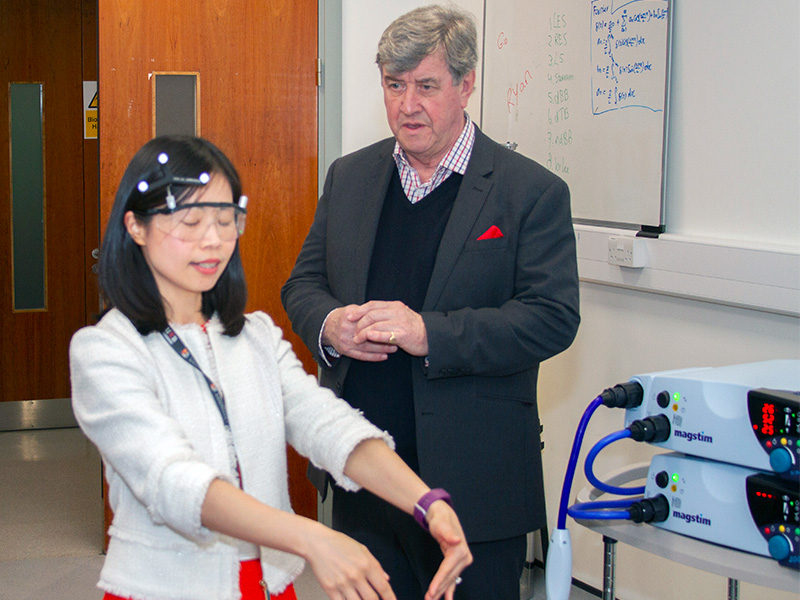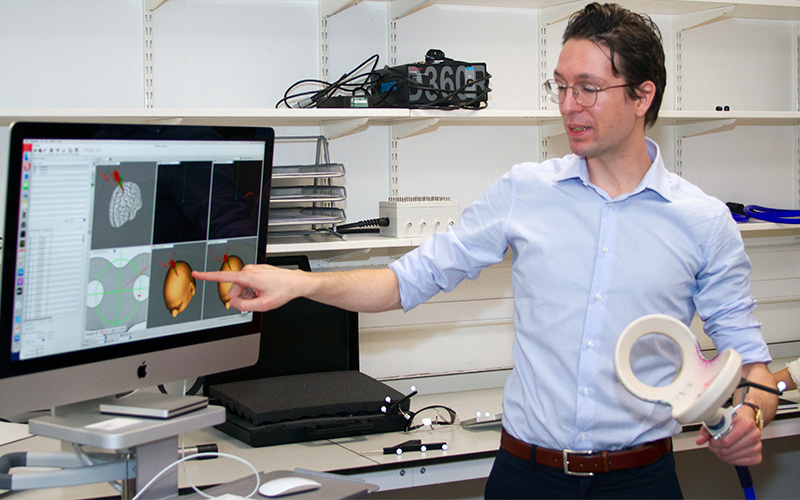Getting your quality of life back after a major injury is key. Researchers at Birmingham, supported by the INSPIRE Foundation, may have found a simple and more effective way of achieving this.
When someone first experiences a spinal cord injury, they urgently need to build up strength in their torso to enable them to sit upright, vital for daily activities such as using a wheelchair, eating, washing, dressing and using a computer keyboard. It is also a critical time mentally, as the person affected and their loved ones try to imagine what their future might look like.
Cycling for the arms, to build torso strength
Existing methods for building this core strength take a long time and rely on a limited number of experienced therapists. Dr Chloe Chiou and INSPIRE's PhD scholarship winner Joeri van Helden believe they have identified an alternative that can build torso strength more quickly, with minimal involvement needed from therapists.

Dr Chloe Chiou demonstrates equipment to INSPIRE Foundation Director Rory Steevenson.
Many people are familiar with pedal cycling machines that can be used from the sofa or a chair to build fitness in the legs. Using this kind of machine for the arms could help rapidly improve muscle function and stability in the torso, by strengthening the motor nerves between the brain and muscles.
After supervised training, it should be possible for these exercises to be carried out at home, giving people who are also processing trauma and physical pain the flexibility to develop their muscle strength when they feel most able.
Joeri’s inspiration
Joeri says: 'I worked as a carer for someone with a spinal cord injury before I began my PhD. I acted as their hands and helped them move. I saw the psychological impact of no longer being able to move.
'My goal is to help people with such injuries regain as much independence and movement as possible, for as long as possible.'

PhD scholar Joeri van Helden.
Joeri is supported by an INSPIRE Foundation PhD scholarship, which contributes to his living costs, stipend and tuition fees. The INSPIRE Foundation was set up in 1987 by four patients who met during hospital rehabilitation following spinal cord injuries. They knew the doctors could get them home, but they were really worried about their quality of life once they got there.
As no one was doing any research into this, they set up the Integrated Spinal Rehabilitation or INSPIRE Foundation to raise money for research into independence and quality of life after spinal cord injuries.
INSPIRE's Director, Rory Steevenson, says: 'Spinal cord injuries can affect anyone; from builders and soldiers to weekend rugby players and bike riders. Christopher Reeve's horse-riding accident showed that even Superman is not immune. We are always looking for innovative research projects like Chloe's which, if approved, may be funded by INSPIRE.'
From concept into clinical care
Chloe and Joeri are now testing arm cycling exercises with individuals living with spinal cord injury to see if they can deliver the anticipated benefits.
They will compare the outcomes of standard core exercises against undertaking both standard core exercises and arm cycling. If the additional exercise offers real improvements, Chloe and Joeri aim to find the best routine and establish how to embed this in clinical care.